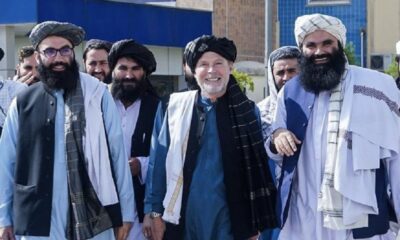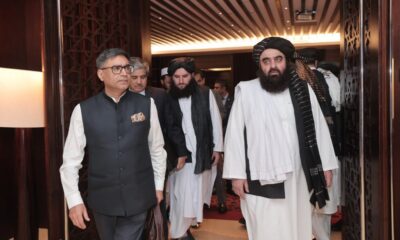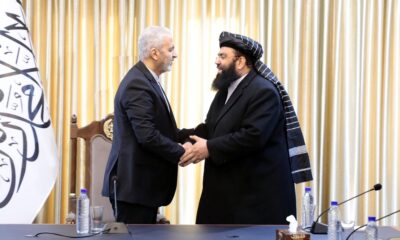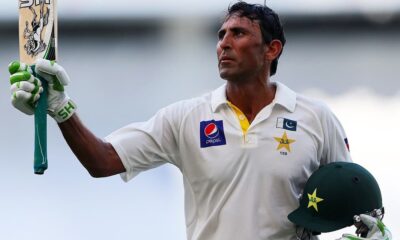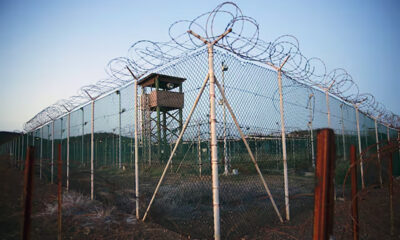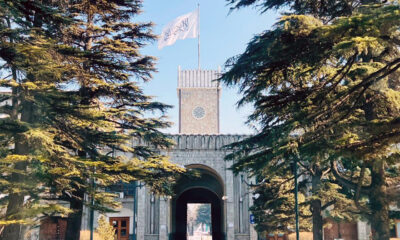Latest News
Putin says US threats smack of Soviet Union’s fatal mistakes

Russian President Vladimir Putin said the United States was wrong to think that it is "powerful enough" to get away with threatening other countries, a mistake, he said, that led to the downfall of the former Soviet Union.
Putin made the comments during a press briefing late on Friday as he spoke about U.S. sanctions against Moscow, according to Russia's news agency TASS.
He was speaking just days before a meeting with U.S. President Joe Biden whose cabinet in April imposed a broad array of sanctions on Russia, including curbs to its sovereign debt market, Reuters reported.
"We hear threats from the Congress, from other sources. It is all done within the context of the United States' domestic political process," Putin was quoted as saying.
"The people who do this, they probably assume that the United States has such economic, military and political might that it can get away with that. It is no big deal, that is what they think."
Putin said such behaviour reminded him of the Soviet Union, Reuters reported.
"The problem with empires is that they think they are powerful enough to make some mistakes. We will buy these (people), bully them, make a deal with them, give necklaces to them, threaten them with battleships. And this will solve all the problems. But problems accumulate. A moment comes when they cannot be solved anymore."
Biden and Putin will meet in Geneva on June 16, the White House and the Kremlin have said, to discuss "the full range of pressing issues", according to Washington.
Latest News
Former Australian hostage in Afghanistan Timothy Weeks dies in Kabul

Timothy Weeks, a 54-year-old English language teacher from Australia, who spent three and a half years in captivity in Afghanistan, died in Kabul on Wednesday.
Weeks, who converted to Islam and went by the name of Jibra’il Omar, was living in Kabul at the time of his death.
The Australian academic had been a lecturer at the American University in Kabul in 2016 when taken hostage by the Islamic Emirate along with an American colleague Kevin King.
He was held hostage for three years before being released in a prisoner swap in 2019.
The prisoner-swap deal saw the two men released in exchange for three Islamic Emirate prisoners, including Anas Haqqani.
According to a statement issued by the Islamic Emirate, Omar passed away in Kabul on Wednesday. He had been battling cancer for “a long time”, the statement read.
“He was captured by the Mujahideen of the Islamic Emirate in the past years, then he was released from prison during the exchange of prisoners, then he converted to the holy religion of Islam with his self-satisfaction and changed his name from Timothy Weeks to (Jabriel Omar),” the statement read.
“Jabriel Omar worked as an English teacher in Kabul. He was very fond of Afghanistan and the Islamic Emirate, and based on that he considered it best to live in Kabul,” the IEA said.
Abdul Mateen Qani, the spokesman for the Islamic Emirate’s ministry of interior, said on X that the “MoI of the Islamic Emirate of Afghanistan expresses its deep sorrow over his death and expresses its condolences to his friends and relatives.”
Latest News
India’s foreign secretary Misri meets with Afghanistan’s FM Muttaqi in Dubai
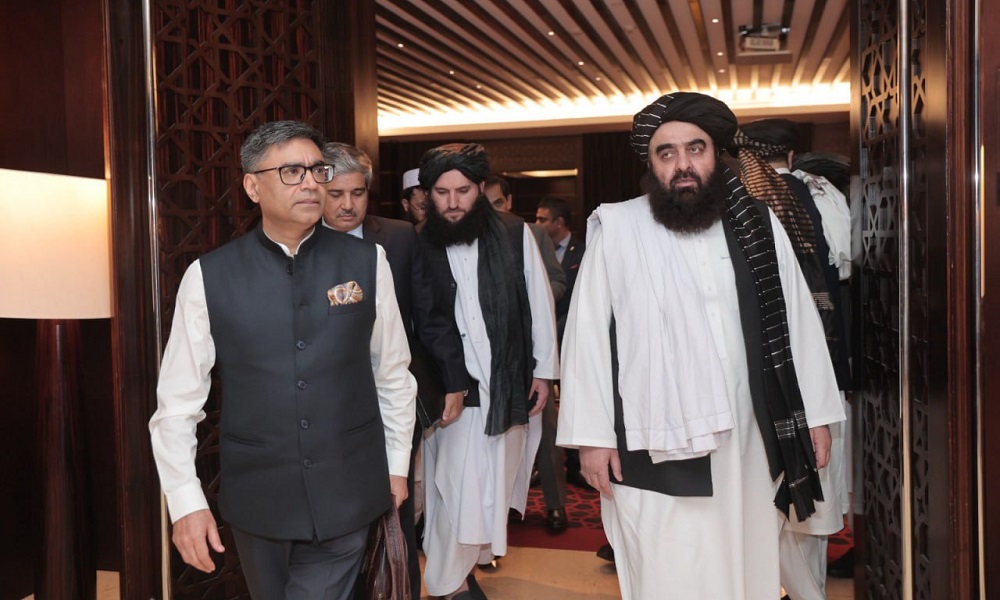
India’s Foreign Secretary Vikram Misri met with Mawlawi Amir Khan Muttaqi, the Acting Foreign Minister of Afghanistan in Dubai on Wednesday for talks on a number of issues.
According to a statement issued by India’s foreign ministry, the two diplomats discussed the need to strengthen bilateral ties and ongoing regional issues.
Misri reaffirmed India's long-standing friendship with the people of Afghanistan, and emphasized the strong people-to-people connections between the two nations.
Misri highlighted India's commitment to addressing Afghanistan's urgent developmental needs and extending humanitarian support.
The discussions also included an assessment of India's ongoing humanitarian assistance programs in Afghanistan.
Misri outlined India's contributions, which have included multiple shipments of critical aid such as 50,000 metric tons of wheat, 300 tons of medicines, and 27 tons of earthquake relief supplies. Other assistance provided by India includes 40,000 liters of pesticides, 100 million doses of polio vaccine, 1.5 million doses of COVID-19 vaccine, hygiene kits for drug rehabilitation, winter clothing, and educational materials.
Muttaqi expressed his gratitude to India for its continued engagement and support to the Afghan people.
He acknowledged the positive impact of these humanitarian efforts and emphasized the importance of expanding cooperation in the near future.
Both parties agreed to explore further developmental initiatives to complement the existing humanitarian programs.
India also agreed to provide additional support in the areas of health and refugee rehabilitation, as requested by Afghanistan. Furthermore, the two sides discussed enhancing sports cooperation, particularly in cricket, a sport that holds significant cultural value for Afghanistan’s youth.
The two ministers also explored ways to bolster economic and trade relations, particularly through the use of the Chabahar port. This strategic port, which connects India, Iran, and Afghanistan, is expected to facilitate smoother trade routes, including for the transport of humanitarian aid to Afghanistan.
In their discussions, the Afghan side reiterated its understanding of India's security concerns, acknowledging the importance of regional stability.
Both sides agreed to maintain regular communication and continue engagement at multiple levels to further deepen bilateral relations.
According to the statement, this high-level meeting underscores India's ongoing commitment to the people of Afghanistan, even amid challenging political and security circumstances, and highlights the continued importance of regional cooperation in South Asia.
Latest News
Iran’s water rights issue resolved through understanding: Deputy PM Kabir

The Political Deputy Prime Minister, Mawlawi Abdul Kabir, who on Wednesday met with Ali Reza Bigdeli, Iran’s new ambassador to Kabul, said the issue of water rights between the two countries has been resolved through mutual understanding and irresponsible statements on this matter could negatively affect the relations between Kabul and Tehran, the deputy PM’s office said in a statement.
At the meeting, Kabir mentioned that there are no factors in Afghanistan that could damage the relations between Iran and the Islamic Emirate.
"Currently, the cultivation and trafficking of drugs in Afghanistan have decreased, and the issue of water rights between Afghanistan and Iran has been resolved through understanding,” said Kabir.
Based on the statement, the Iranian Ambassador has invited Abdul Kabir to visit Tehran.
Meanwhile, Bigdeli emphasized the development of relations and the increase of economic cooperation between the two countries, stating that the activation of the Chabahar Port and its inauguration are priorities.
Kabir added that the IEA is eager to develop economic and political cooperation with Iran.
He said: "The Islamic Emirate does not allow its relations with other countries to be affected by external factors, but Afghanistan is striving to achieve regional stability and economic power."
Kabir also stated that necessary facilities should be provided for Afghan migrants, and they should be treated with compassion. He called for the cessation of forced deportations of Afghan refugees.
-
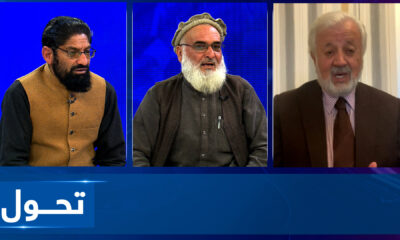
 Tahawol4 days ago
Tahawol4 days agoTahawol: Afghanistan in the US spotlight discussed
-

 Interviews5 days ago
Interviews5 days agoDebate with acting Minister of Industry and Commerce
-
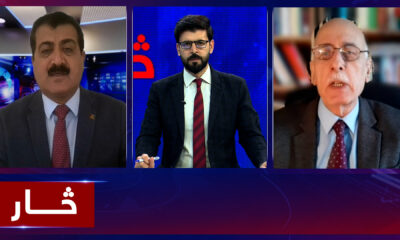
 Saar4 days ago
Saar4 days agoSaar: Pakistani officials’ remarks against Afghanistan discussed
-
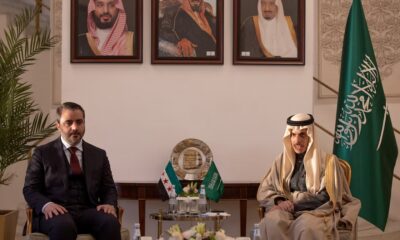
 Regional5 days ago
Regional5 days agoSyria to include all sectors in new government, foreign minister says
-
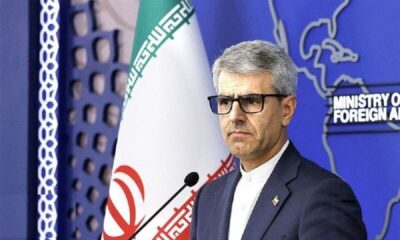
 Latest News5 days ago
Latest News5 days agoIran urges Afghanistan to remove obstacles to water flow
-
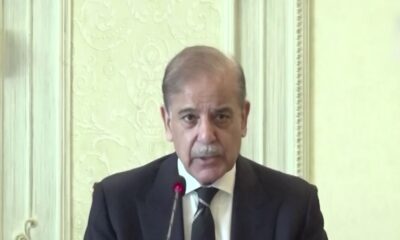
 Latest News4 days ago
Latest News4 days agoRecent attack on Afghanistan was a justified response to Pakistan’s foes: Sharif
-
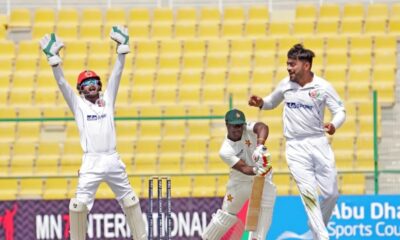
 Sport3 days ago
Sport3 days agoRashid Khan puts victory in sight for Afghanistan v Zimbabwe
-

 World4 days ago
World4 days agoUS plans $8 billion arms sale to Israel, US official says


